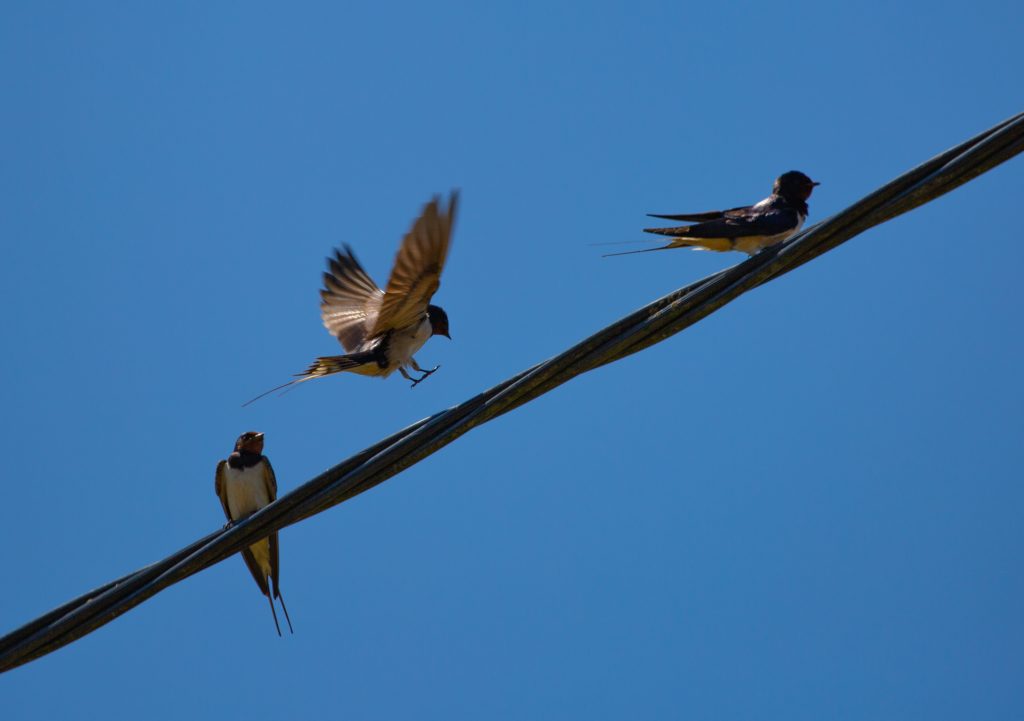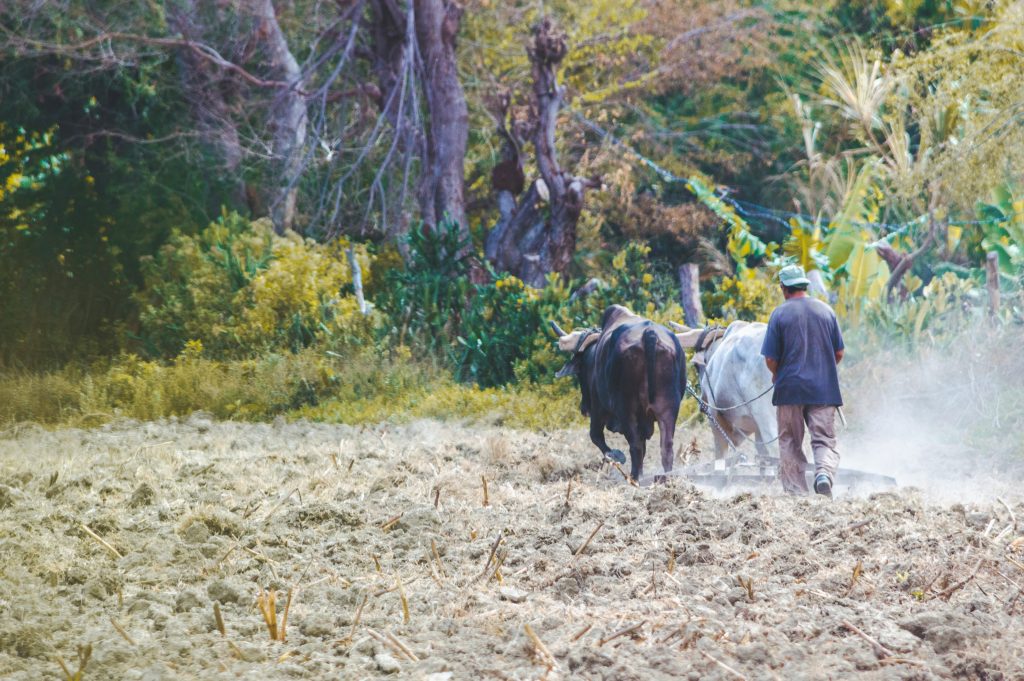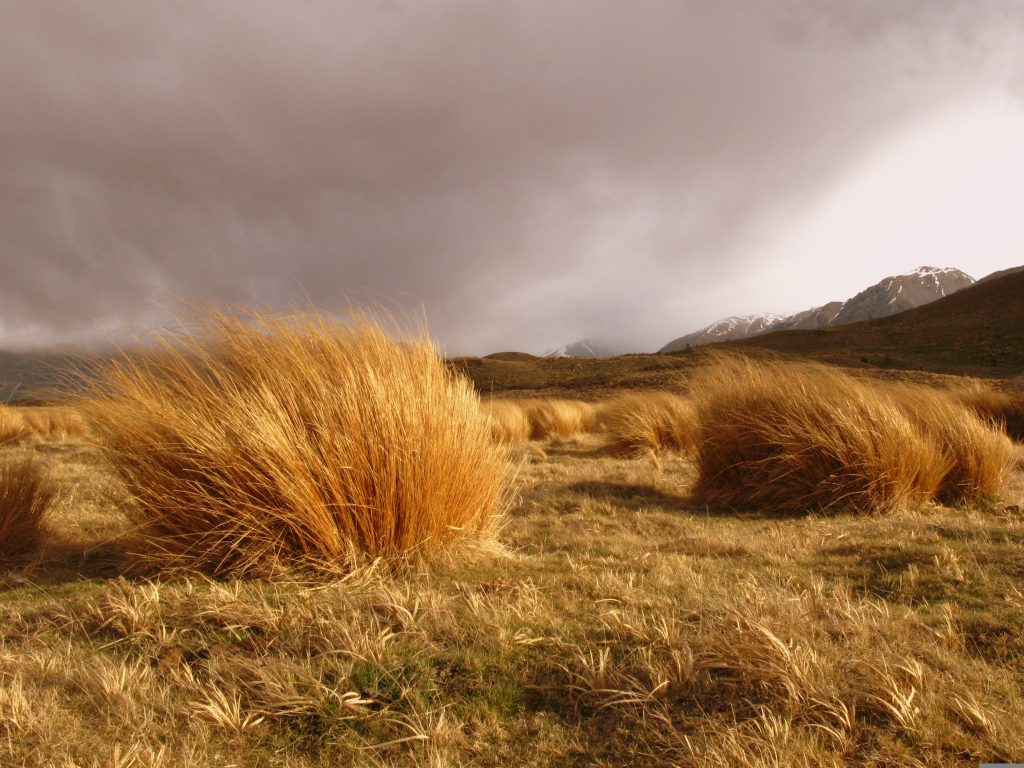A Short Story by Yordan Yovkov. Translated by Cathy Kostova
While defending him from the dogs, Petar the Shepherd realized that this unknown peasant hadn’t come to him just like that, but rather some misfortune was chasing him. That’s why he got angry at the dogs, drove them away, and looked at the peasant again. His red vest gave away that he was from Torlatsi, from the Deliorman region. He was tall and stout, but it was evident that he was poor, as if he had been born poor. His shirt was nothing but patches, clumsily sewn together, his belt was worn out, and his shoes were also in a poor state. He was barefoot. Overall, he looked like a mountain of a man, but the Shepherd quickly assessed him in his mind and concluded that he belonged to those soft, relaxed people for whom even the ant’s path is of value.
The peasant greeted and mumbled something like “how are you, are you well,” but it was obvious that he had something else on his mind, and there was concern in his eyes. He looked ahead and pointed with his hand, asking if the village of Mandzhilari was on this side and how far it was. the Shepherd gave him directions, and only now did he notice that a single horse carriage had stopped on the road. The peasant had come out of this carriage to speak to him. Inside sat a woman, with her hands folded on her lap, her shawl wrapped around her; her apron was not tied but had loose ends on the sides for comfort. It was hot—undeniably hot—but the Shepherd knew that when women loosen their aprons like that, they are bothered not so much by the heat but for some other reason. In the back of the carriage, partially covered with a sheet, with her head resting on black village pillows, lay another woman, younger, probably a girl. She was looking sideways, and her face couldn’t be seen.
“You seem troubled,” said the Shepherd.
“I am. My girl is poorly.”
The peasant glanced at the sheep grazing in the meadow, his eyes fixed on them but not really seeing them, as his gaze wandered, filled with worry.
“Our story is whatever it is,” he said. “Whatever it is…”
“You are not from here, are you?” the Shepherd asked him.
“I’m from Kichuk Ahmed. They changed the name to Hope now, near Kanara. I’ve come from there. I travel through the villages, selling mud clay—we dig out good clay in our village. It’s good, women buy it. When I go downhill to the sea, I buy and bring back fish or grapes, whatever happens to be available. By God’s grace—we manage to sustain ourselves. If only this bad luck hadn’t happened to us…”
He sat on the ground, took out a leather pouch with tobacco, and started rolling a cigarette. The Shepherd sat down next to him and noticed how his thick calloused fingers trembled as he rolled the cigarette.
“Our children don’t survive,” he began. “We lost two-three while they were little. Only this one is left for us now.” He glanced towards the carriage. “We have sheltered her like our own eyes. I’ve taken food from my mouth, I have done everything I could to buy her things, to make her clothes so that she doesn’t feel wanting when she sees others. Well, thank God, we’ve kept her until now. But lately, she’s been fading away. There’s nothing wrong, she’s just withering. She used to say to her mother – she was sad that her girlfriends were getting married and leaving, and she stood still. “Why do you rush, my child“, I told her, “Your luck will come. Why do you compare yourself to them? They come from having. Young lads today, they seek rich wives. You will also get married, focus on your own work, you have time.“
“How old is she?” asked the Shepherd.
“Almost twenty. She’ll turn twenty on the Feast of the Virgin Mary.”
“Well, she’s young.”
“Young, indeed.”
The peasant fell silent and looked at the sheep, without really seeing them. Somewhere nearby, amidst the heat, a harvester was screeching on.
“This summer, she insisted on going to harvest. We are poor, she wants to help, but when I saw her so weak and sickly, I didn’t want to let her go. ‘Please, father,’ she pleaded, ‘let me go, I want to go with the girls.‘ Well, she insisted like that and I let her go. Now, what happened, I wasn’t there, I don’t know. They went to sleep in the field, they got up in the field. I know it only from what she told me. One day they harvested all day, ate in the evening, then the girls sang and danced. They went to sleep. Nona—that’s my daughter’s name—laid to sleep too. ‘I laid down, father,‘ she said, ‘between the sheaves, under a cross, I laid down on the lee, so that no wind would blow on me, and I fell asleep. At some point, I felt something heavy, something cold right here on my chest. When I opened my eyes: a viper!‘”
“Good Lord!”
“Yes, a viper. It had curled up and laid on her chest. She screamed, and in her fear, she grabbed it and threw it away!”
“She threw it away! That happened during harvest. I heard a story that one viper even entered a woman’s mouth. But it didn’t bite her, did it?”
“No, it didn’t. It just laid on her chest, she grabbed it and threw it away! That’s what she told me. Whether it was a dream, whether it was true—I don’t know. Since then, the girl hasn’t been the same. Look at her, she’s withering away like a leaf. Her chest hurts. ‘There, father, where the viper was, it hurts me.‘”
“Oh, my my…” the Shepherd marvelled. “Where are you taking her now? To a doctor?”
“Doctors—how many doctors we’ve seen. I’m taking her now… um… how can I say it… If it were up to me, I don’t believe it, but they are women, and she’s sick, she’s my baby…”
His voice faltered, and he fell silent again. He stared, tugging at his moustache and beard, unshaven for a long time, rough and speckled with silver strands. The Shepherd could clearly tell that each white hair was a mark of worry.
“One evening,” the peasant continued, “some of our fellow villagers from Skelia arrived. They had something to say—what exactly, I don’t know? They are a frivolous bunch; they might have even been joking around. And then Stoennitsa, our godmother, came rushing to our house. She’s a big talker, a know-it-all. ‘Guncho,‘ she called out from the doorway, ‘The good fortune has arrived for you, and for Nonka too. Let’s celebrate.‘ ‘What’s going on?‘ I asked. ‘Nikola and Penyu have come from Mandzhilari, the Siderovs, they say that a white swallow has appeared… a wholly white one, white like the snow.‘ ‘Really?‘ ‘You know, Guncho, do you know what a white swallow means? It appears only once in a hundred years, but whoever sees it, no matter what illness they have, they will be cured! Guncho, you must go, don’t wait‘. Take Nonka there. ‘Ah, is this true?‘ the girl burst into tears and hugged her mother. And so, we came.”
“But is it true?” exclaimed the Shepherd. “Where did this white swallow appear?”
“I told you, it appeared here, in Mandzhilari.”
“White?”
“Completely white.”
As the Shepherd was astonished, he looked towards the road: every day the herd grazed on that meadow, but only now did he notice how many swallows were perched on the telegraph wire. It wasn’t surprising; the Feast of the Transfiguration of Jesus was approaching, and during this time, swallows and storks gathered before their migration. There were so many swallows, densely perched next to each other, that the wire sagged under their weight like a beaded necklace. There were many, but all of them were black.
“So that’s why I’ve come,” said Guncho, more boldly and with relief. “I thought to ask you, maybe you’ve seen it, maybe you’ve heard…”
“I haven’t, brother, I haven’t. A white swallow? Neither seen nor heard of it.”
But immediately the Shepherd realized that he might completely dishearten these people, so he said:
“But it could be. It’s possible. White ox, white mouse, and white crow—they exist. So, there could be a white swallow too. And there must be, since it’s been heard…”
“Who knows?” sighed the peasant. “If it were up to me, I wouldn’t believe it, but they are women after all…”
He stood up to leave. Touched, the Shepherd also got up to see him off and to see the girl. As they reached the road, the mother, her skin tinted in yellow, a worn-out woman burdened by weight, looked at her husband from a distance, as if she wanted to read on his face what he had learned. The girl was still standing, facing sideways, and watching the swallows on the wire.
“This man said the village is near”, the peasant said.
When she heard her father’s voice, the girl turned around. She was frail, barely any strength showing under the blanket, melted by illness, her face was waxy but her eyes were still bright, still young and smiling. She kept looking back between her father and the Shepherd.
“Nona, this man has seen the white swallow” the peasant said and glanced at the Shepherd. “It was in that village, over there! Let’s hope we spot it too!”
“Will we see it, mister?” pondered the girl, and her bright eyes lit up.
Something surged in the Shepherd’s chest, he choked, his eyes filled with tears.
“You will see it, my child, you will see it,” he spoke up. “I saw it, and you will see it too. I saw it with my own eyes, white, completely white. You will see it too. May God grant that you see it, my child, and recover… you’re still young. You will see it, I’m telling you, you will see it… and you will recover, my child, don’t be afraid…”
The mother squeezed her eyes shut and burst into tears. The tall, sturdy peasant coughed, grabbed the reins of his horse, and led it away.
“Go in good health!” the Shepherd called after them. “The village is nearby. Follow the wire, follow the wire!”
He stood on the road for a long time, watching the carriage disappear. He watched the mother with her black kerchief, the girl lying next to her, the tall peasant walking hunched over and leading the small horse, and above them, the swallows fluttering between every two telegraph poles, flying away and then returning to perch on the wire.
Lost in thought, the Shepherd returned to his sheep and resumed making the shoes he crafted from rough cowhide. “White swallow,” he pondered to himself. “Does it exist?” But something held him back in his chest, tormenting him. And as he let go of his awl and looked up at the sky, he exclaimed:
“Oh God, how much suffering there is in this world, oh God!”
And he looked after the carriage once more.



